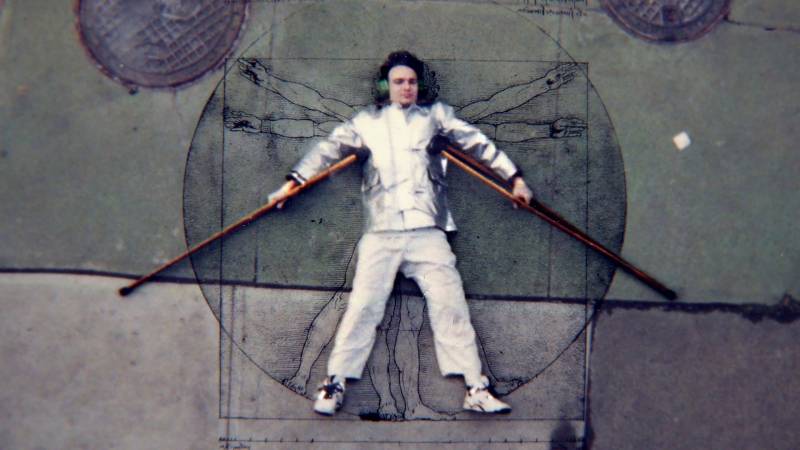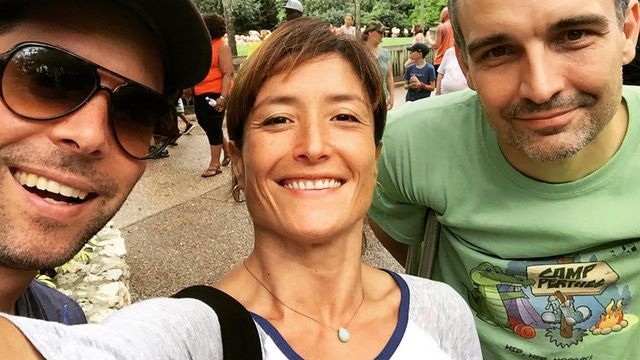Watching Bill Shannon dance can be enthralling, disturbing and voyeuristically captivating. But what makes him such a singular artist is that he’s likely to be carefully observing you, too.
A virtuoso on crutches who came of age in the 1990s as a b-boy and skateboarder, Shannon is a performance artist and provocateur who has earned international fame while refusing to slip compliantly into preconceived narratives set aside for disabled dancers.
A new documentary about his life and work, Crutch, premieres as part of the Doc NYC film festival, screening virtually Nov. 11–19. Co-directed by San Francisco cinematographer and filmmaker Sachi Cunningham and Los Angeles’ Vayabobo (a.k.a. Chandler Evans), the film is an intimate, multilayered sojourn into the psyche of a restlessly creative artist.
In many ways, the curse afflicting so many documentaries turned out to be a blessing for Cunningham and Vayabobo. The challenges of fundraising for an independent feature meant they spent two decades working intermittently on Crutch. The extended production allowed them to capture the evolution of a protean artist from his early days as a street performer who secretly filmed interactions with unwitting good Samaritans seeking to help someone capable of literally dancing circles around them.
“He was in this dark period when we started following him,” says Vayabobo on a recent Zoom call. “He was heavily in the hip-hop scene and we created our own archives of his performances. In those early days he’d already developed the language that he uses. Sachi and I would joke that we had to learn crutch-ese, because he used this terminology for his moves. We’d nod, but I didn’t understand what he said. It wasn’t until watching the tapes years later that I could really put his terminology together with his moves.”




